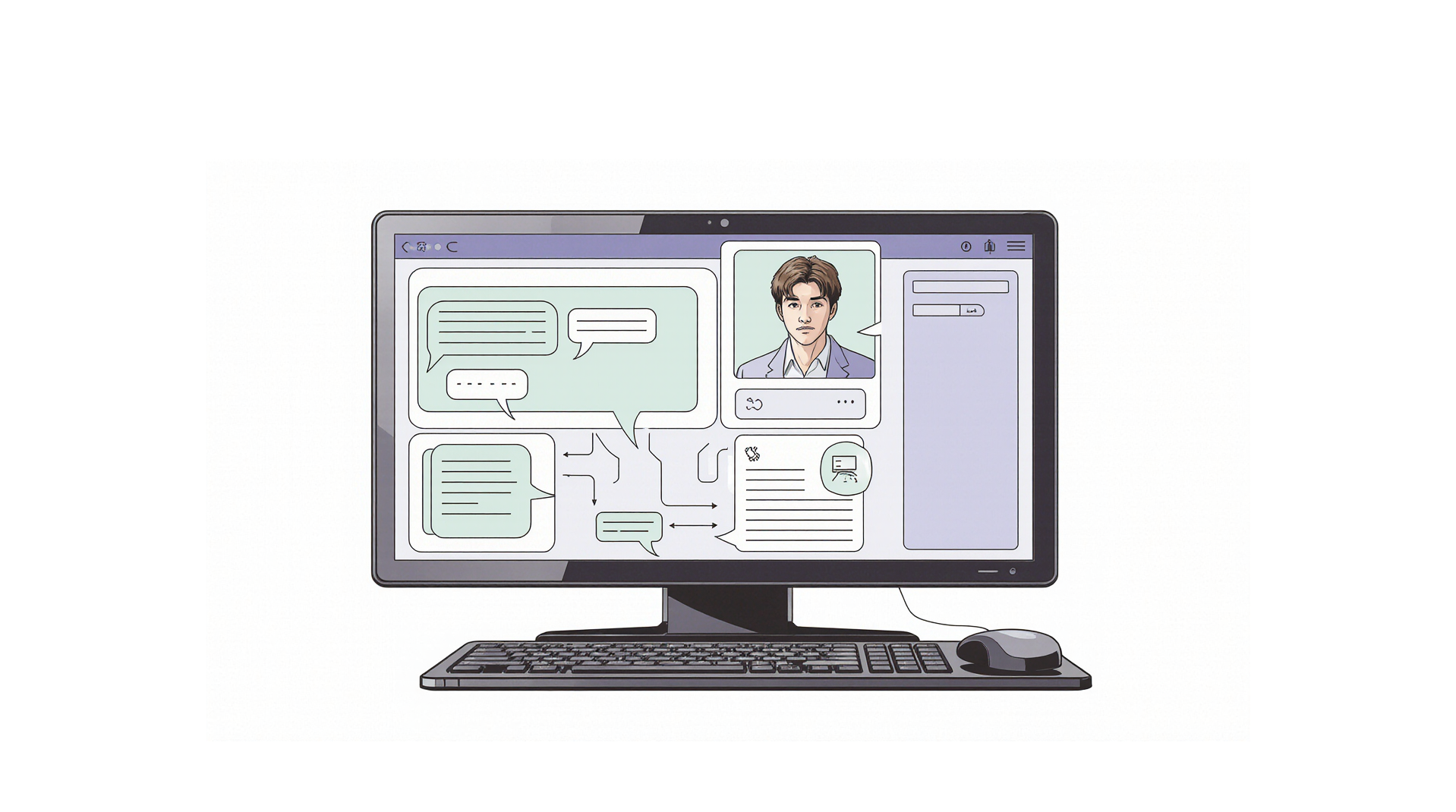What Is an AI Sales Engineer?
Artificial intelligence is reshaping nearly every function within sales, but one role often misunderstood in this shift is the sales engineer (SE).
Many assume that AI tools are designed to fully replace humans in technical sales conversations, when in reality, their purpose is quite different.
Sales engineers remain critical because they build trust and credibility with prospects in ways technology alone cannot.
In this article, we’ll explore what an AI sales engineer really is, what it is not, how it works, and the different ways it can support sales teams.
What is not meant by an AI sales engineer?
When people hear the words AI SDR or AI sales rep, their first reaction is to assume these technologies will put SDRs and sales reps out of a job.
For an AI sales engineer, this couldn’t be farther from the truth.
Sales engineers are an irreplaceable part of a sales team because they bring an element of trust to the sales conversation. A buyer may not trust what a rep says, but if an SE makes the same claim, they will believe it. Why? Because SEs are the voice of subject matter expertise.
Couple that with the idea that humans buy from humans, and that even a small deal for a vendor may be the largest purchase made by the buyer; there is no replacement for the human trustworthiness of a sales engineer in a sales conversation.
So, the first thing to understand about AI sales engineers is that they don’t replace real-life sales engineers.
What is an AI sales engineer?
So, what do AI sales engineers do instead? They augment the sales engineer.
Sales engineers are a constrained resource in any sales organization. They are slow to hire, slow to ramp, and quite expensive. If you’re selling enterprise deals of half a million or a million dollars, you can afford to put an SE on every call with a 1:1 AE:SE ratio. But, if you’re selling anything under $100K, you often have 2, 3, or even 5 AEs sharing a single SE.
Naturally, that SE's life sucks. But, more importantly, they are stretched so thin they can’t impact deals to the best of their capabilities.
An AI sales engineer alleviates these constraints by learning the “tribal knowledge” of the best SEs, not to replace them, but to augment them.
This augmentation takes three main forms.
First, the AI SE takes tactical tasks off an SE’s plate by being the first line of defense for the barrage of rep questions that are coming the SEs' way or by taking the first stab at the time-draining and soul-crushing tasks of filling RFPs.
Second, it backs ramping SEs on calls so they can “kick the ball farther” in the call instead of generating a litany of follow-ups.
Third, it backs reps (and CSMs) on calls where adding an SE, just in case things got “technical”, would consume valuable SE time.
Put another way, an AI sales engineer helps oversubscribed SE teams scale efficiently.
How do you train an AI sales engineer?
The way you train an AI SE is similar to how you’d train a human SE.
SEs don’t learn a product by simply reading docs or reviewing an API.
They learn how to bob & weave in a call by shadowing the best SEs in the org over a period of weeks or months.
Turns out, that’s exactly how you train an AI SE as well.
You train an AI SE by feeding it the sales calls of your best SEs. Add in Slack conversations and emails to capture a majority of the “tribal knowledge” of your SEs; stuff that never makes it to documentation.
Round out the training by feeding it “documented knowledge” sitting in knowledge bases, help centers, or code, and now you’ve trained AI to mimic the best of your SE team’s knowledge.
What are the different ways you can use an AI sales engineer?
There are five main ways you can deploy an AI Sales Engineer, ranging from the simplest to the most complex.
1. Deploying an AI sales engineer as a Slackbot
First, you can deploy it as a simple Slackbot to answer questions your reps are constantly asking SEs on Slack. This way, both the rep and the SE save time. The rep saves time because they don’t have to wait for an SE to get back to them. The SE saves time because AI is able to handle a majority of repeat, tactical questions that suck up their time.
2. Using an AI sales engineer in your help center or docs
Second, you can deploy an AI sales engineer in your help center or docs to educate and support your customers. This way, the customer can ramp up better without ever talking to a human SE. That’s a win for both the customer and the sales team.
3. Leveraging an AI sales engineer for RFP responses
Third, if RFPs are a major part of your sales motion, you can have the AI SE take the first stab at filling them. This changes the SE's job from spending the better part of a day filling the RFP to spending 10-15 minutes reviewing and cleaning the AI SE’s responses. The more RFPs you have to answer, the faster this speeds you up.
4. Automating documentation updates with an AI sales engineer
Fourth, most companies have incomplete or out-of-date documentation. Instead of human SEs constantly reviewing and updating the docs, you can get the AI SE to update documentation to reflect the latest batch of features and capabilities released in the product.
5. Supporting live calls with an AI sales engineer
Last but not least, you can have the AI SE join your calls to back up ramping SEs and reps on live calls. This saves time by giving confidence to ramp up SEs and shaving their ramp time without relying on human SEs to mentor them for weeks.
Second, it gives confidence to reps to take more calls without a human SE. Of course, you don’t want to remove the human SE from calls. After all, humans buy from humans. Rather, you want to save their time by allowing them to avoid calls they’d otherwise be on mute for 40 minutes only to speak up for a few minutes.
What are the challenges customers face in adopting an AI sales engineer?
While AI Sales Engineers can provide immense value, organizations often encounter a few key challenges when implementing them effectively:
1. Training AI with a stable product
Training AI to mimic SEs assumes that your product is relatively stable. Companies that haven’t found product-market fit yet struggle with training AI (or humans) to be experts in the product because the product is actively changing under their feet.
2. Managing multiple product versions
Another key challenge is when you have different “versions” of the product. In these scenarios, it’s challenging to distinguish which knowledge is tied to which version of the product. It’s also hard to ask a question because you often don’t know what version of the product the customer is on.
3. Handling different levels of question complexity
Lastly, let’s assume there are five levels of difficulty to a question you could ask an SE—human or AI. Level 1 is the type of questions even an SDR should be able to answer about your product. Level 5 is a question that requires looking at code, talking to engineering, and digging deep into the customer logs to give an answer.
AI Sales Engineers are currently optimal for questions that are level 1 through 3 in difficulty. They could help you with some Level 4 questions, but rarely help with Level 5 questions.
Future trends of AI sales engineers
The role of the AI sales engineer will only expand as the underlying technology matures. One of the most significant developments will be the rise of multi-modal AI that can not only answer questions but also show, demonstrate, and guide prospects through complex workflows in real time.
Imagine an AI SE walking a customer through a live product demo, adjusting the flow based on questions asked, and even tailoring the experience to the prospect’s specific use case. This will shorten sales cycles, reduce costs, and enhance the buying experience by providing prospects with immediate, personalized access to expertise.
Another important frontier is voice. While AI SEs that speak naturally on calls are not yet fully viable due to the “uncanny valley” problem, progress in speech synthesis and conversational AI suggests this barrier will not last long.
Eventually, AI SEs will support reps as human-like participants in calls, capable of jumping in when technical expertise is needed, and freeing human SEs to spend more time on strategic and high-value interactions.
Looking further ahead, we may also see AI SEs evolve into continuous learning systems that automatically update themselves with the latest product changes, industry knowledge, and competitor intelligence.
Over time, they will not only augment SEs but also proactively surface insights, recommend sales strategies, and act as a living knowledge system that grows smarter with every interaction.
Final thoughts on AI sales engineers
AI sales engineers are not a replacement for human sales engineers, but rather a powerful tool to extend their reach and impact. By offloading repetitive tasks, accelerating ramp time, and providing coverage in areas where SEs are stretched thin, AI helps teams scale without sacrificing trust or expertise.
There are challenges in training and adoption, particularly around product stability, multiple versions, and the limits of complexity AI can handle today.
Still, the trajectory is clear as AI sales engineers continue to become more capable, more integrated, and more valuable over time. In the end, the companies that embrace this augmentation early will empower their SE teams to focus where they matter most: building relationships, driving trust, and closing deals.









